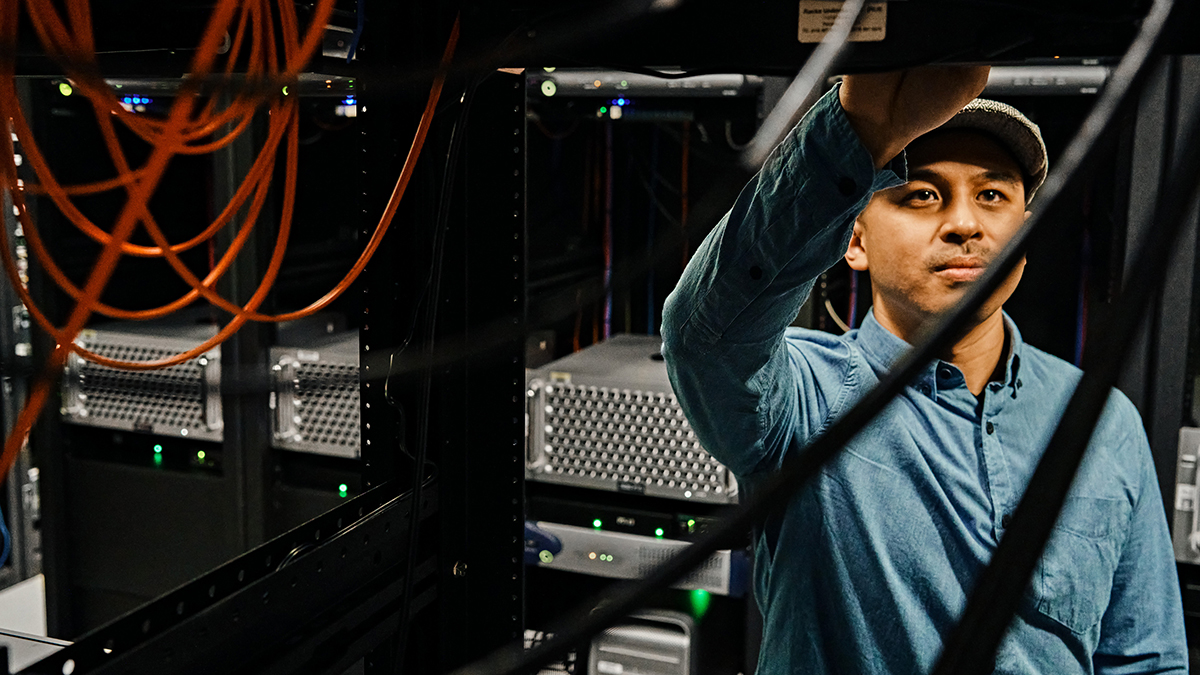Apple heads to Skywalker Ranch to discover the sound secrets of Star Wars
“If I was a teenage filmmaker again, I’d be amazed,” says sound designer Ben Burtt
OK, the fourth may not be be with us any more, but that’s no reason not to enjoy Apple’s latest ‘Behind the Mac’ mini documentary, which sees it stepping inside the hallowed walls of Skywalker Sound, the state-of-the-art sound design, editing, mixing, and audio post-production facility that was set up by Star Wars creator George Lucas on his California ranch.
The film and companion written feature brings us interviews with some of the key players in Star Wars’ sonic saga, who explain how some of cinema’s most iconic sounds can come from the most unlikely places.
“I love happy accidents and I love breaking technology and getting unexpected results,” says supervising sound editor and sound designer Al Nelson. “I love to play with digital systems that are clocking wrong, meaning the way the bits are flowing. It’s broken, it sounds like bad radio. I have a really old [Mac] PowerBook, and it has certain old software I like to use; I can feed recordings into it and digitally break them.”
We learn that there are now more than 720,000 sounds in the Skywalker library, all carefully tagged so that they can easily be located. Bonnie Wild, who’s worked on both The Mandalorian and The Last Jedi, explains that “getting access to the Star Wars sounds felt like breaking into a vault,” describing her workplace as “a building full of people dedicated to sound”.
While it’s easy to see sound design and musicianship as separate disciplines, Al Nelson believes that the two are closely related: “We’re all musicians - either literally musicians, or musicians of sound,” he says. “Everything is very much a tonal approach or an orchestration approach. You can’t just throw noise at the screen; you have to articulate and pick your flavours in the same way that you would orchestrate something symphonic.”
Randy Thom, meanwhile, a veteran of The Empire Strikes Back, explains how George Lucas changed the way that movies sounded, eschewing the ‘synthetic’ style that dominated before Star Wars in favour of something that was rooted in reality but also exotic.

“What I learned from Star Wars was that Ben [Burtt] used all natural sounds to do science fiction,” says Gary Rydstrom, a seven-time Oscar-winning sound designer who started working at Lucasfilm in 1983. “He kept sounds in the Star Wars universe gritty and realistic, based on real sounds you would manipulate into something you’d never heard before, which was inspiring.”
Get the MusicRadar Newsletter
Want all the hottest music and gear news, reviews, deals, features and more, direct to your inbox? Sign up here.
Burtt of course, is a Star Wars legend, having worked on the original films and the prequels (not to mention the Indiana Jones franchise). What, then, would be his advice to people who aspire to work in film sound design?
“I tell young people who want to work with sound in movies, ‘You should listen to the world around you and build a sound effects collection,’” he says. “Get a recording and classify it, because any time you build a library of sound, you are making creative choices.
“The other thing is that because there are plenty of inexpensive applications that you can have access to now on your iPad or your MacBook, that you can actually do all kinds of cutting and sound-mixing at home. I could never do that. If I was a teenage filmmaker again, I’d be amazed. I’d have drones, I could do all kinds of sound recording. I could do none of those things in my formative years.”
You can read the full Skywalker Sound feature on the Apple website.



I’m the Deputy Editor of MusicRadar, having worked on the site since its launch in 2007. I previously spent eight years working on our sister magazine, Computer Music. I’ve been playing the piano, gigging in bands and failing to finish tracks at home for more than 30 years, 24 of which I’ve also spent writing about music and the ever-changing technology used to make it.









